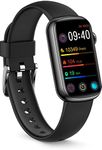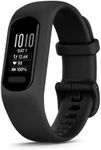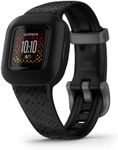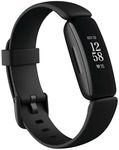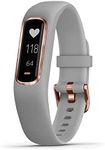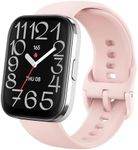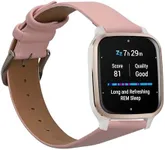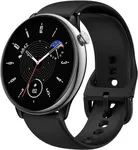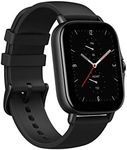Buying Guide for the Best Cheap Fitness Trackers
When shopping for a cheap fitness tracker, it's important to focus on the features that matter most to your lifestyle and fitness goals. While lower-priced models may not have all the bells and whistles of premium devices, many still offer solid performance for tracking your daily activity, sleep, and basic health metrics. Start by thinking about what you want to track—steps, heart rate, sleep, or maybe even workouts—and look for a tracker that covers those essentials. Comfort, battery life, and ease of use are also important, as you'll likely be wearing the device all day. Remember, the best fitness tracker for you is the one that fits your needs and encourages you to stay active.Activity TrackingActivity tracking refers to the device's ability to count your steps, distance traveled, and calories burned throughout the day. This is the core function of any fitness tracker and helps you monitor your daily movement. Some trackers offer basic step counting, while others can automatically recognize different activities like walking, running, or cycling. If you just want to keep an eye on your general activity, a basic tracker will do. If you want more detailed insights into specific workouts, look for a tracker with multi-sport or automatic activity recognition features.
Heart Rate MonitoringHeart rate monitoring allows the tracker to measure your pulse throughout the day and during exercise. This feature is important if you want to track your fitness progress, monitor your health, or optimize your workouts. Some trackers offer continuous heart rate monitoring, while others only measure on demand. If you're interested in understanding your overall health or want to train in specific heart rate zones, choose a tracker with continuous monitoring. If you just want occasional checks, a basic model will suffice.
Sleep TrackingSleep tracking helps you understand your sleep patterns by monitoring how long and how well you sleep. This can be useful if you're trying to improve your rest or identify sleep issues. Some trackers provide basic information like total sleep time, while others break it down into light, deep, and REM stages. If sleep quality is important to you, look for a tracker with more detailed sleep analysis. If you're only curious about how long you sleep, a simpler tracker will be enough.
Display and ControlsThe display and controls determine how you interact with your fitness tracker. Some have simple LED indicators or no screen at all, while others feature full touchscreens. A screen makes it easier to check your stats on the go, but can also use more battery. If you prefer simplicity and longer battery life, a tracker with minimal or no display might be best. If you want to see your progress instantly or get notifications, look for a tracker with a clear, easy-to-read screen.
Battery LifeBattery life tells you how long the tracker can go between charges. This is important because frequent charging can be inconvenient, especially if you want to wear the tracker all day and night. Basic trackers without screens or with limited features can last up to a week or more, while those with color displays or continuous monitoring may need charging every few days. If you don't want to worry about charging often, choose a tracker with longer battery life. If you're okay with charging more frequently for extra features, a shorter battery life may be acceptable.
Water ResistanceWater resistance indicates whether the tracker can handle sweat, rain, or even swimming. This is important if you plan to wear your tracker during workouts, in the shower, or while swimming. Some trackers are only splash-proof, while others are rated for full submersion. If you want to track swimming or never take your tracker off, look for a model with a higher water resistance rating. If you only need protection from sweat or rain, a basic level will do.
App Compatibility and SyncingApp compatibility and syncing refer to how the tracker connects to your smartphone and what kind of app support it offers. The app is where you'll see detailed stats, set goals, and track your progress over time. Most trackers sync via Bluetooth to a companion app, but the quality and features of these apps can vary. If you want in-depth analysis or integration with other health apps, check that the tracker works well with your phone and offers a user-friendly app. If you just want basic stats, app features may be less important.

